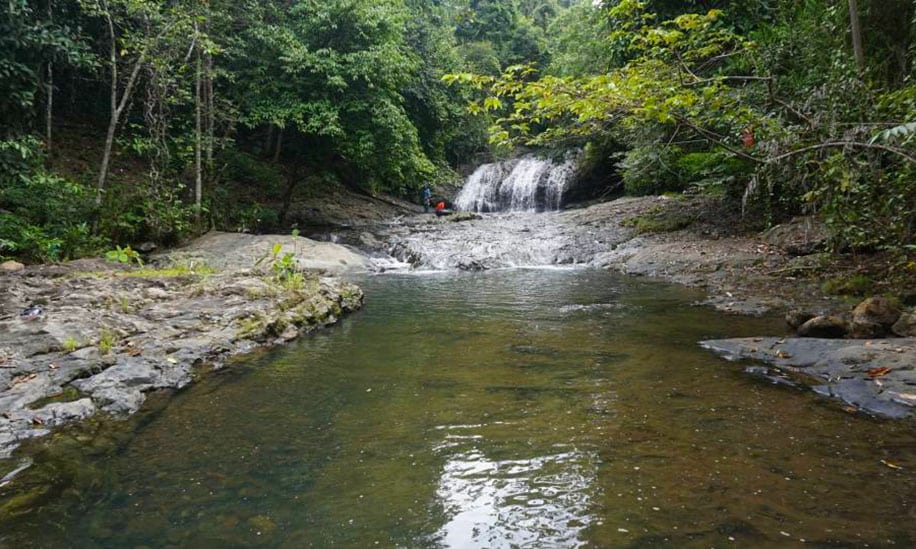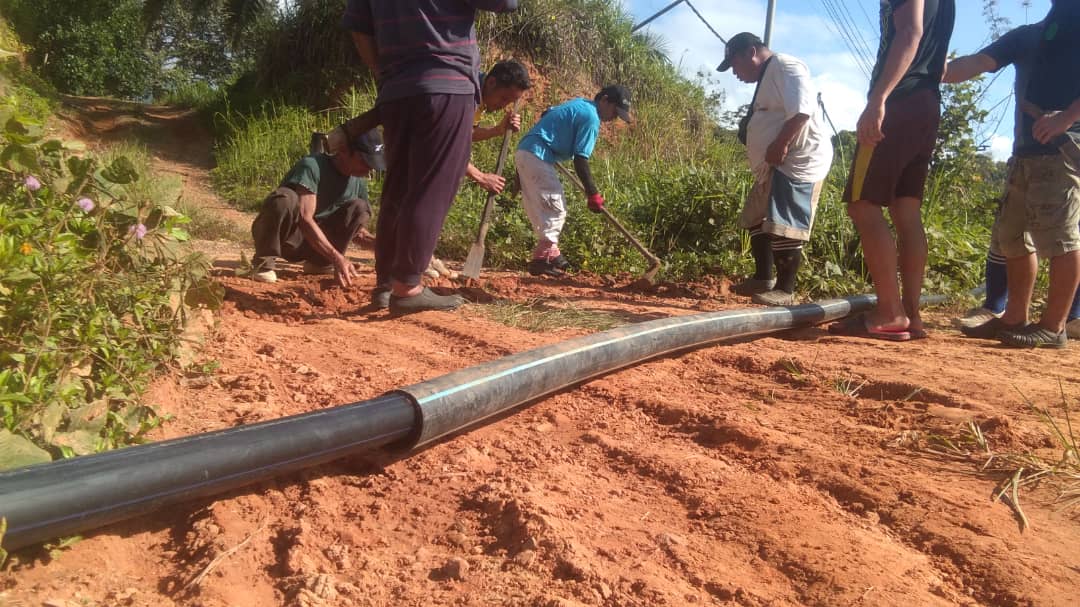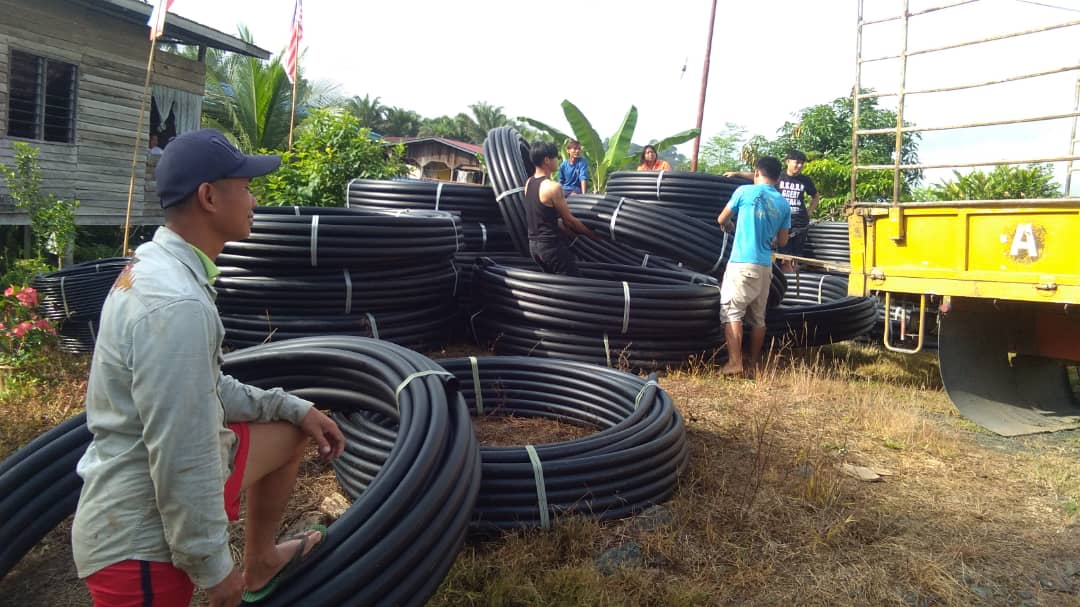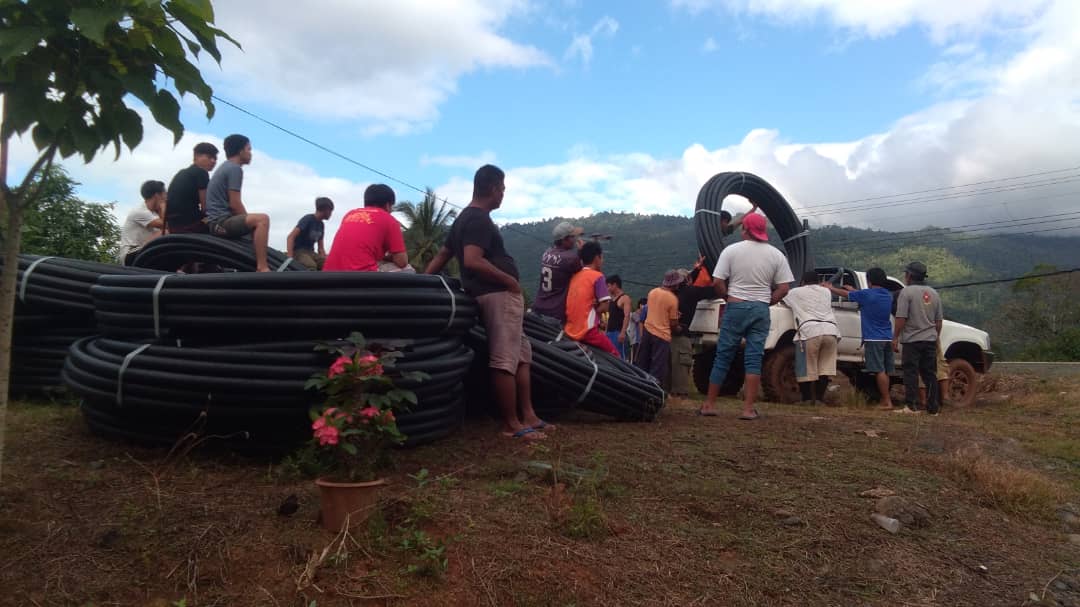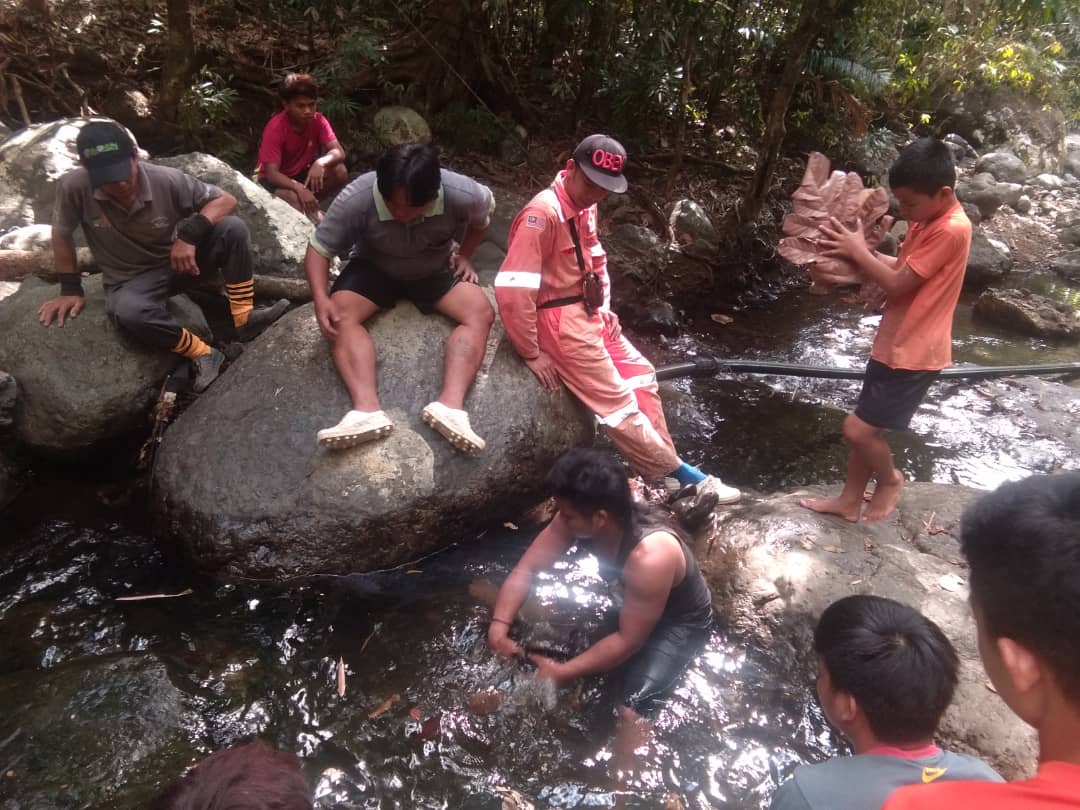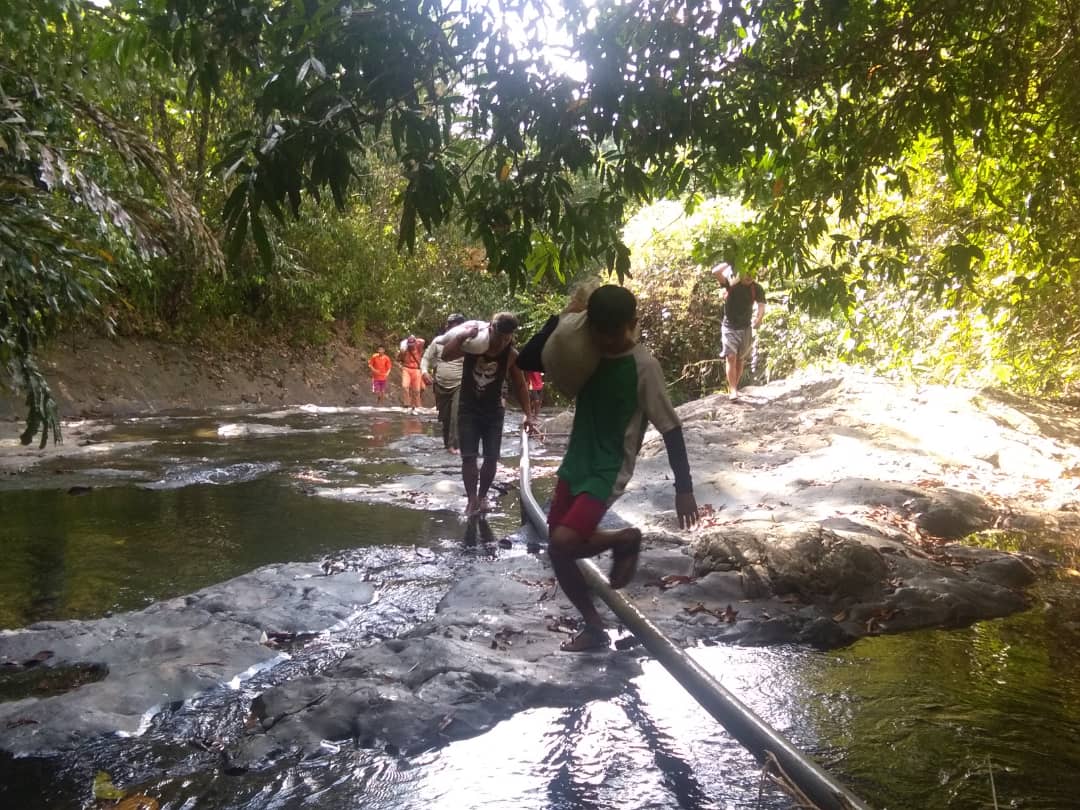Nowhere on earth tops Borneo for biodiversity. It is home to more than 15,000 plant species, more than 200 species of mammals (including the orangutan, pygmy elephant, Sumatran rhinoceros, clouded leopard), and 420 bird species (37 of them endemic), just for starters. It is also under enormous threat from big logging and oil palm interests.
This project will protect an 840-acre forest in the mountains of Sabah, on Borneo. This forest is especially significant because it is upstream from the Kinabatangan Wildlife Sanctuary. That 64,000-acre reserve is teeming with wildlife, including ten primate species, four of which are endemic to Borneo. The marbled cat (a lynx-like predator that hunts primarily in trees), white-crowned hornbill, and many other species are also found there.
Langkabong is a community of 850 people of the indigenous Dusun ethnic group. They value traditional law and practice village-level decision-making. Most families grow rice, and in the watershed area, they still have access to traditional craft materials such as rattan and bamboo.
A Seacology grant will fund installation of a five-kilometer, gravity-fed water supply system. This will replace the inadequate system the village now relies on. Because a healthy watershed is critical to the water supply, the community has a strong interest in preserving the forest.
This is the second in a series of seven watershed protection projects that Seacology hopes to implement in Sabah. The first was in Mangkadait Village, protecting 400 acres of forest in exchange for a gravity-fed water supply system. In total, these projects will protect more than 5,000 acres of forest.
PACOS (Partners of Community Organizations in Sabah) Trust has been working with Sabah communities for more than 25 years and with Langkabong since 1999. Seacology has worked with PACOS on several successful projects in Malaysia.


